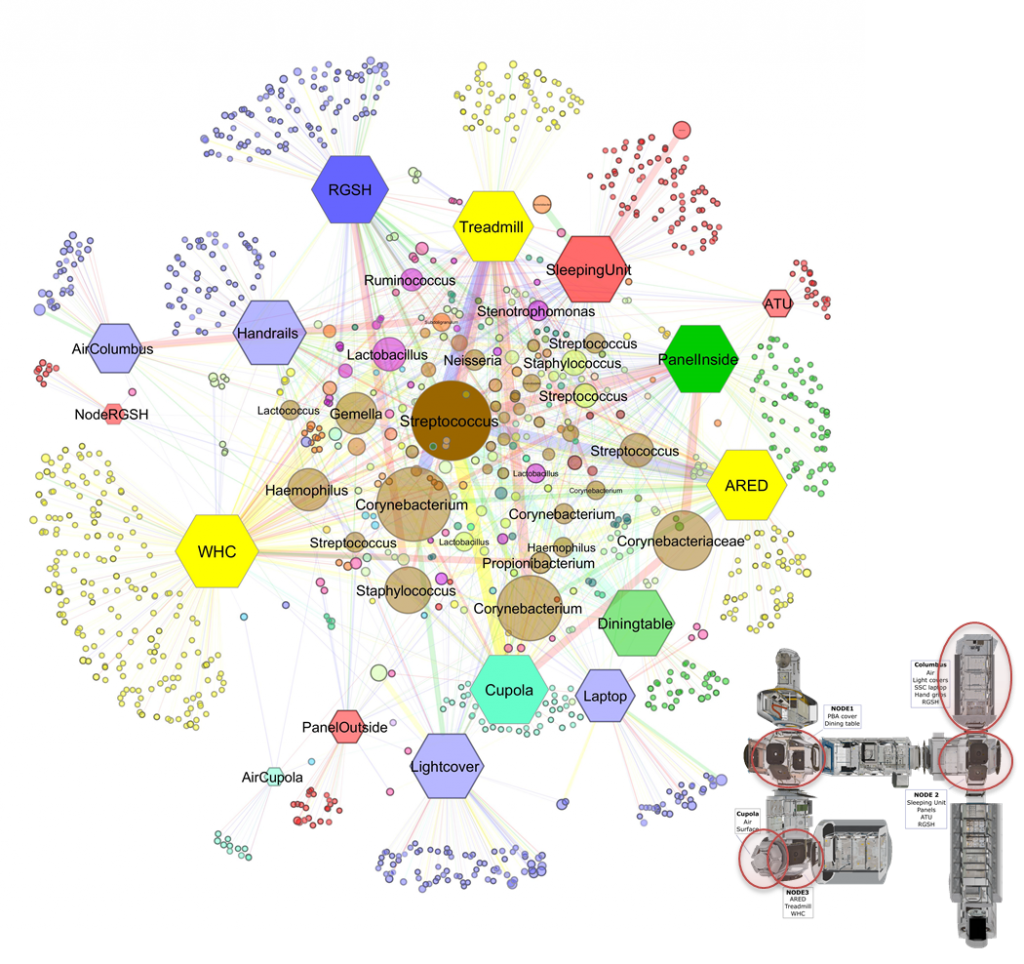Human space exploration beyond Earth and Moon is a declared goal of NASA, ESA, Roscosmos and other space-faring agencies, with human Mars mission envisioned in the near future. One of the major challenges of the mission is protecting the human crew from illness and infection caused by harmful biological contaminants. To evaluate these challenges in the most confined human populated habitat in space, Dr. Maximilian Mora and colleagues investigated the profile, diversity, dynamics, and functional capacity of the cultivable and non-cultivable microbiomes aboard the International Space Station, as well as the microbes’ genomic and physiological adaptation to these special conditions. The findings are described in an article published in Nature Communications “Space Station conditions are selective but do not alter microbial characteristics relevant to human health”.
The results show that the ISS microbiome is dynamic and changes over time. It harbors a core microbiome of 55 microbial genera, and is dominated by human-associated microorganisms, including Streptococcus, Corynebacterium, Lactobacillus, Acinetobacter, and Staphylococcus. The authors show that local factors shape the ISS microbiome composition. The sampling time point was the strongest factor influencing the ISS microbiome, but the location also had an effect: The highest diversity of microbial signatures was detected in the sleeping unit, and specific taxa exhibited increased presence in certain areas.
Interestingly, cultivable microbial community revealed extremotolerant features, such as antibiotic resistance, ability to grow in low and high pH and temperature and oligotrophic conditions, as well as resistance against heat shock, UVC and X-ray. Selected, freshly isolated ISS strains exhibited surface-microbe interaction with regard to material integrity, which might pose a risk to the mission. However, microbial resistance potential was similar to that of ground controls, and also genomic inventory of ISS microbes was similar to that of non-ISS relatives. Consequently, the authors rejected the hypothesis indicated by previous literature reports that ISS microorganisms possess a higher extremotolerance and antibiotics resistance potential compared with ground controls.
